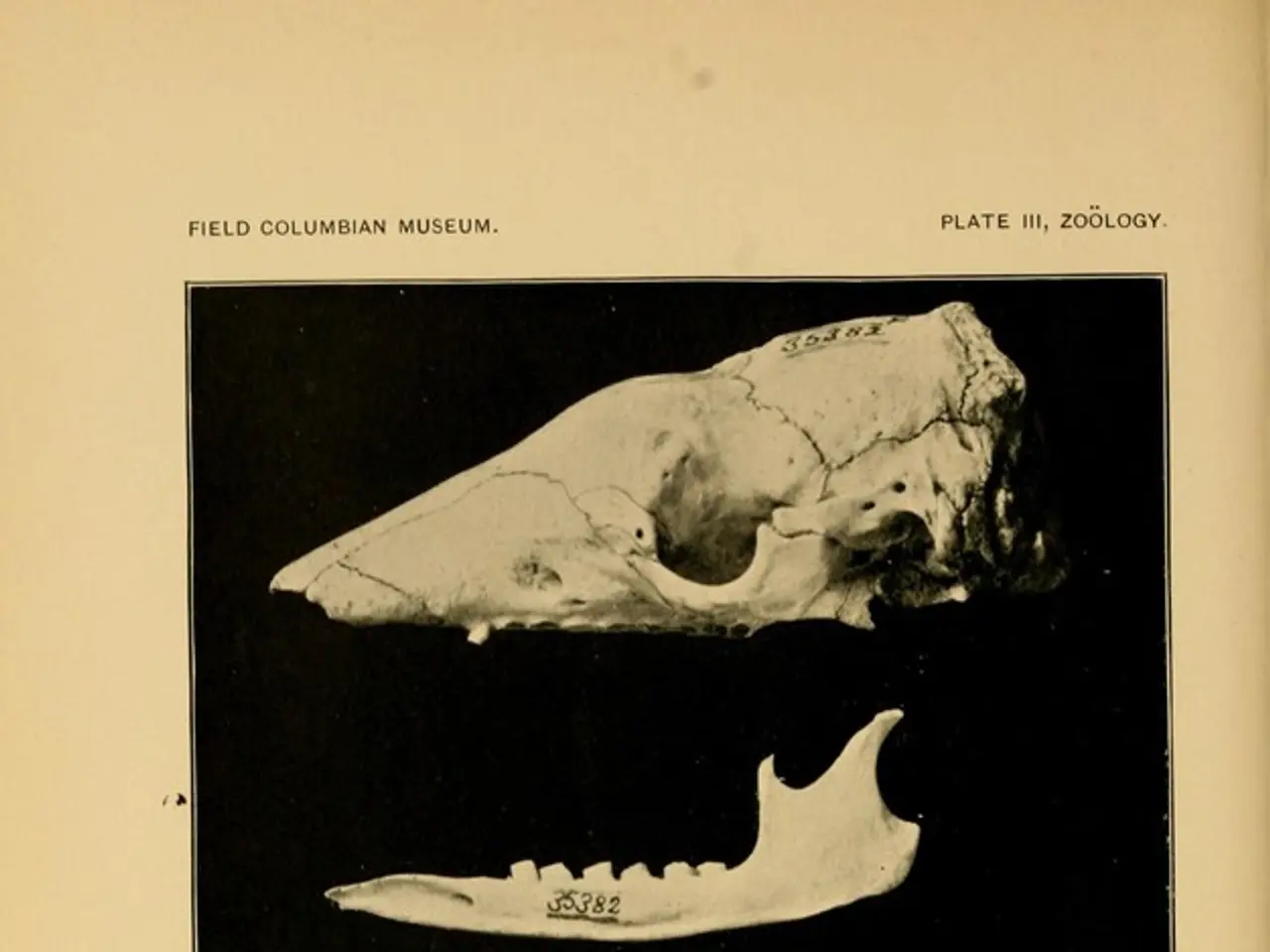Mineral Deficiency and Osteoporosis: A Neglected Aspect Reducing Risk Factor
In a recent study, the relationship between copper and bone health has been further illuminated, revealing its crucial role in maintaining healthy bones and preventing the onset of osteoporosis. The research, which utilized data from the National Health and Nutrition Examination Surveys (NHANES) conducted by the U.S. Centers for Disease Control and Prevention, examined the dietary intake and bone mineral density of 8,224 participants.
The study found that increased levels of copper were linked with higher total spine/femur bone mineral density, but this association was only found in women participants, not in men. Copper is essential for bone formation and strength, as it is involved in collagen cross-linking, which provides tensile strength to bone tissue. Collagen is a key structural protein in bone, and proper cross-linking ensures bone resilience and durability.
Copper also supports the activity of osteoblasts and osteoclasts, the cells responsible for building and resorbing bone, respectively. An imbalance in these cells’ activities can lead to bone diseases such as osteoporosis. Copper deficiency disrupts this balance, potentially reducing bone density and increasing fracture risk.
Research shows that copper deficiency leads to bone abnormalities, reduced bone mineral content, decreased bone strength, and higher risk of fractures. Animal and human studies have confirmed that insufficient copper intake impairs bone health.
Moreover, copper helps prevent oxidative damage in bone tissue, protecting bone cells from stress that could otherwise weaken bone structure. It also has been found to stimulate osteoblast growth and enhance osteogenesis, promoting faster healing of bone defects.
Adequate copper is crucial for maintaining healthy bones by supporting collagen integrity, balancing bone remodeling cells, preventing oxidative damage, and promoting new bone growth. Deficiency in copper can result in lower bone density and increased fragility.
Good dietary sources of copper include beef liver, oysters, mushrooms, cashews, potatoes, tofu, sunflower seeds, and dark chocolate. The National Institutes of Health (NIH) recommends that adults over 19 get 900 micrograms of copper daily, while pregnant and breastfeeding women need more, with pregnant women needing 1,000 micrograms and breastfeeding women needing 1,300 micrograms per day.
It's essential to maintain the balance of copper in the body to avoid potential health issues. The NIH cautions adults not to get more than 10,000 micrograms of copper per day. To achieve this balance, it's recommended to avoid taking copper in supplement form and instead consume copper-rich foods.
The patients with osteoporosis in the study tended to be older, more emaciated women with hypertension who were taking prednisone or cortisone. It's worth noting that magnesium is necessary for converting vitamin D into its active form for optimal calcium absorption, and combining calcium with vitamin D is crucial for proper absorption in the body.
In summary, this study underscores the importance of maintaining adequate copper intake for bone health and the prevention of osteoporosis. By consuming copper-rich foods and balancing intake, individuals can support their bone health and reduce their risk of osteoporosis.
- The importance of nutrition, particularly copper intake, in maintaining bone health and preventing osteoporosis has been further highlighted in recent research.2.Copper, an essential nutrient, plays a crucial role in promoting bone formation and strength by supporting collagen cross-linking.
- This essential mineral also helps balance bone remodeling cells, preventing oxidative damage, and promoting new bone growth.
- In the study, increased levels of copper were linked to higher total spine/femur bone mineral density in women participants, but not in men.
- To ensure the necessary copper levels for bone health, individuals are advised to consume foods rich in copper such as beef liver, oysters, mushrooms, and dark chocolate.
- Additionally, research suggests CBD may have benefits for skin care and may potentially contribute to wellness and health-and-wellness, particularly in the field of mens-health and womens-health.




